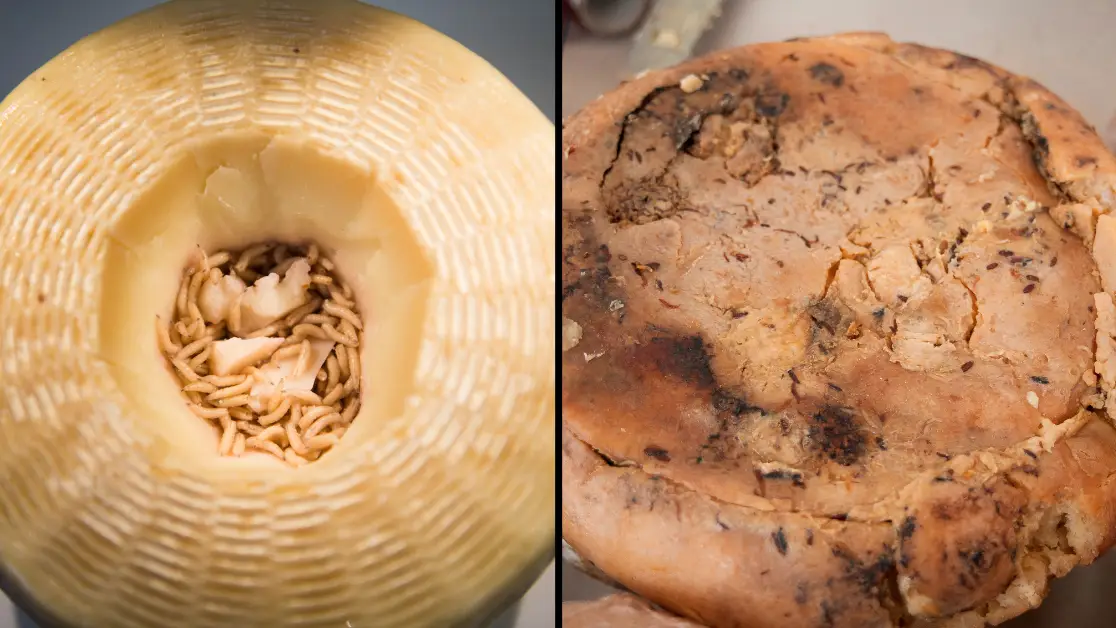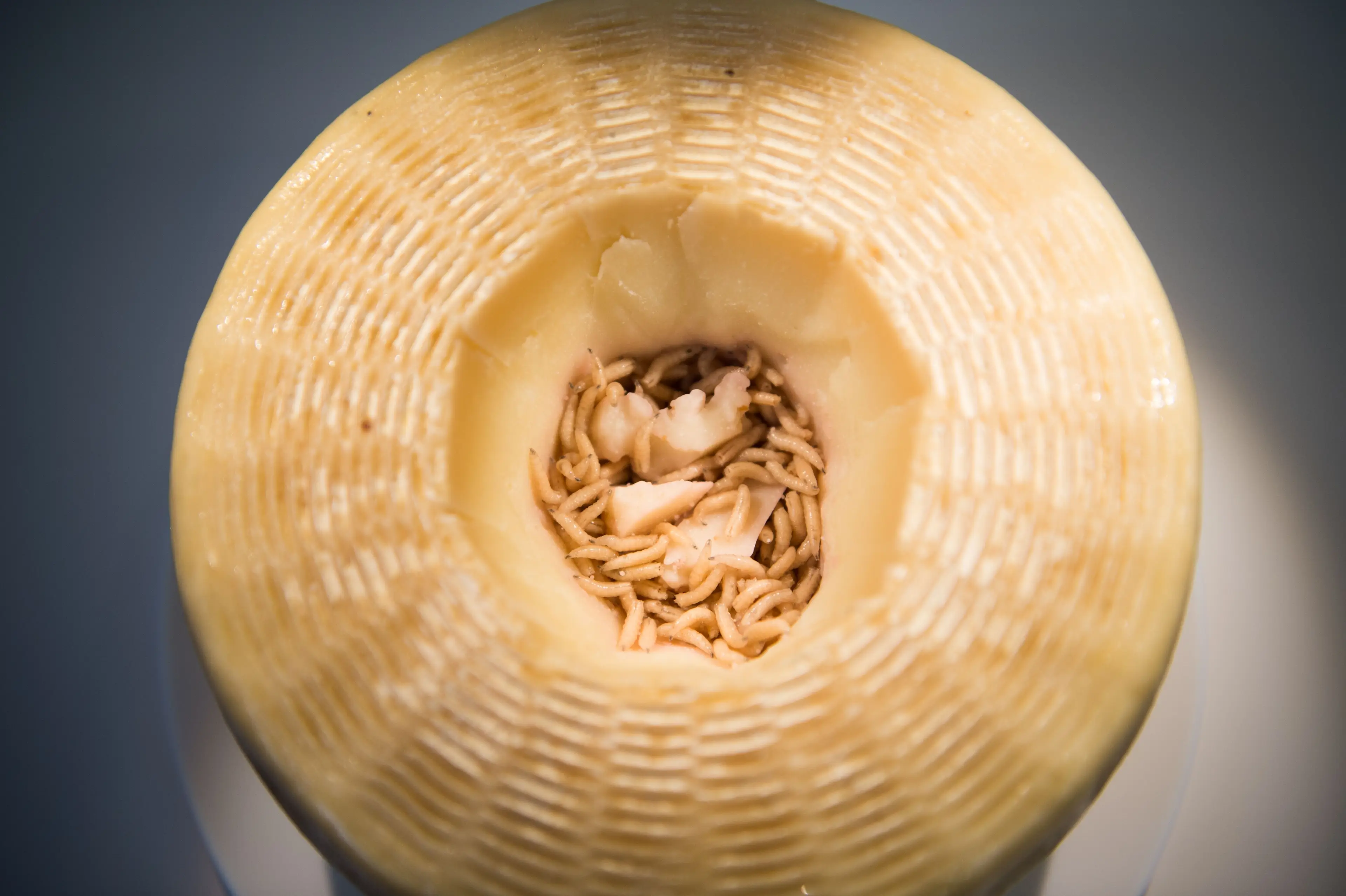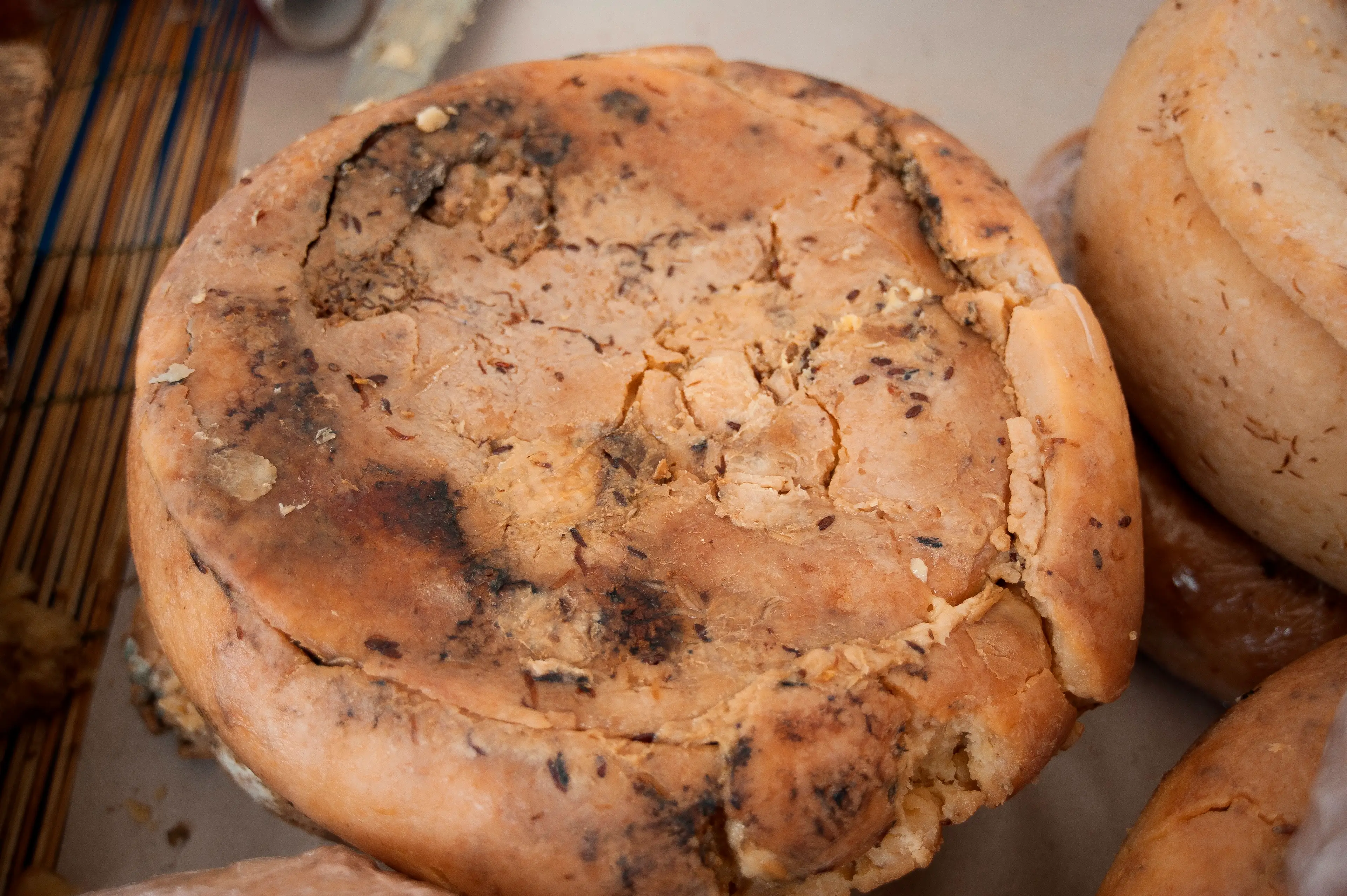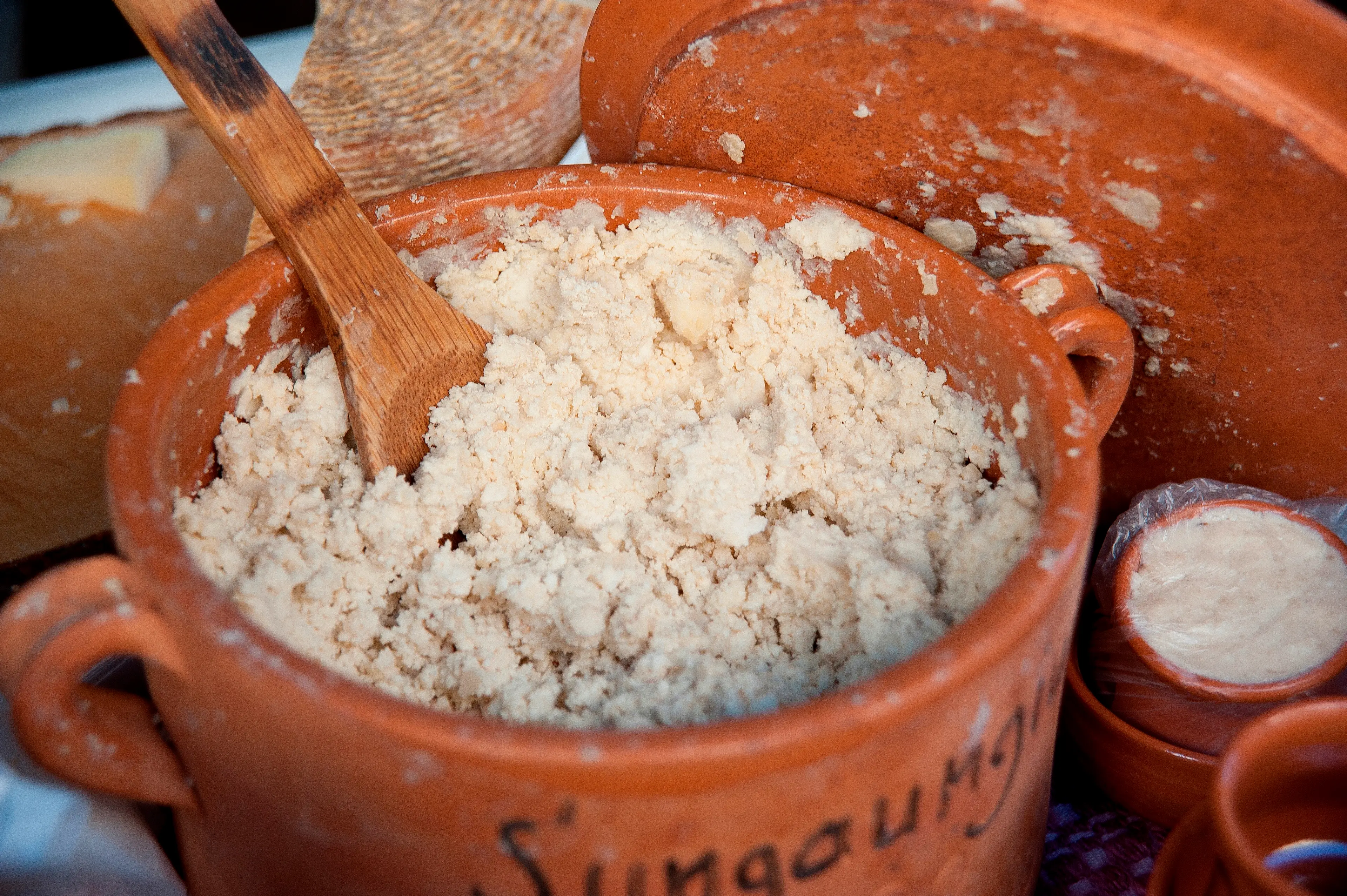
The summer holidays are nearly here and with that, chance to experience foreign culture in all its glory.
There truly is nothing better than heading overseas and having a crisp pint of local lager while sampling the best local cuisine has to offer (well, for this writer anyway).
But not everything everywhere should be quaffed quite so quickly.
Advert
In fact, some should be outright avoided.
That includes one delicacy on one of the most stunning islands in Europe has to offer, with flights to the location as little as £14.99 thanks to our friends at Ryanair.
Despite the likes of Gordon Ramsay once upon a time seeking it out, the food can cause real illness if you eat it, with it actually illegal to sell it.
Back in 2009 it was also named in the Guinness World Records as the world's most dangerous cheese. Hardly a USP.
But that doesn't stop people from making it and offering it out for free as a local delicacy.
We're talking about a delicacy called casu martzu. Sometimes called casu marzu, it's a local delicacy in the Mediterranean.

Found primarily on the Italian island of Sardinia, it's a traditional produce that's made in a pretty unique way.
We're off to a pretty normal start with standard ingredients forming most of the production phase.
But it gets interesting with the addition of live maggots. No, we're not joking.
It's actually what makes it such a local delicacy, with maggots hatching in the cheese itself and making their way through the dairy product.
They digest proteins in the cheese, which in turn makes a more creamier, soft product.
Locals even spin the cheese through a centrifuge device to mix the maggots with the cheese. Just how Mother Nature intended.

Paolo Solinas, a Sardinian food expert, explained the local love for case martzu.
"The maggot infestation is the spell and delight of this cheese," he told CNN Travel.
"Some shepherds see the cheese as a unique personal pleasure, something that just a few elects can try."
Giovanni Fancello, a Sardinian journalist in his early 80s, said: "We have always eaten worms. Pliny the Elder and Aristotle talked about it.
"They ask us - ‘How do you make casu marzu?’. It’s part of our history.
"We are the sons of this food. It’s the result of chance, of magic and supernatural events."

Despite being loved locally, it's banned across the European Union when it comes to commercial sale of the product.
Some health concerns exist regarding the larvae surviving in your stomach and making it to your intestine.
There it can lead to a condition called pseudomyiasis, where flies can grow out of your skin. So gross.
Despite this the annual illegal production of casu martzu has been estimated at 100 tonnes per year, worth between €2 and €3 million.
Topics: Food And Drink, Travel, UK News, Viral, World News, Health